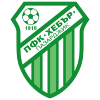София
Бээр-Шева
15` | ||
21` | ||
42` | ||
64` | ||
65` | ||
77` | ||
79` | ||
89` | ||
90` | ||
90` | ||
90` | ||
Matches of teams




No data available
Prediction Levski Sofia - Hapoel Beer Sheva
Show all robotsThe most popular user's bets
Win 1
In the match between Levski and Hapoel Be'er Sheva, low scoring is expected and the likelihood of the home team winning is higher. The first match in Israel ended in a draw, and today's match will be decisive. Both teams have shown weak attacking play, so it is not expected that there will be many goals scored in this match. Additionally, statistics show that the Israeli club performs weakly away from home, so Levski has a good chance of winning. The home stadium will provide motivation and support for the Bulgarian team. Based on these factors, it is worth trying to bet on a Levski victory.
Обе забьют Да
According to the facts presented and the analysis of the situation, the following forecast can be made for the match between Levski and Hapoel. The first point to note is that Levski will not be able to play a 0-0 draw against Hapoel again. This suggests that the likelihood of both teams scoring goals is quite high. This could be due to an improvement in Hapoel's performance or a drop in form for Levski. However, it should be taken into account that extra time or penalty shootout is a possibility. If the match ends in a draw and the tournament rules allow for these forms of determining the outcome, there is a chance that the stronger team will be determined in extra time or through a penalty shootout. In such a case, the element of chance becomes even more significant in determining the winner. The final forecast will depend on multiple factors such as team form, line-ups, tactics, and the psychological state of the players. However, considering the high probability of both teams scoring goals and the potential for extra time or a penalty shootout, it can be presumed that the outcome of the match will be determined not only by the number of goals but also by elements of chance. Overall, this is a hypothesis based on the presented facts and analysis of the situation. However, in football, there is always room for surprises, so the final result may turn out to be different.
Обе забьют Нет
During the qualification stage of European cup competitions, teams often play a more defensive style of football. This is due to a high emphasis on safety and minimizing the risk of conceding goals. In such matches, teams usually prefer to shut down their defense and play more conservatively in attack. This can result in a low number of goals, as both teams will be focused on defense and preventing goal-scoring opportunities. The low number of goals can also be explained by the high pressure and strategic tactics employed in qualification games. In such matches, teams are typically more cautious in their attacks and prefer to make more careful and controlled decisions. This can limit the opportunities for creating goal-scoring chances and increase the likelihood of a draw or a victory with a minimal number of goals. Therefore, it can be expected that there will be a lower number of goals in European cup qualification matches. While it is impossible to predict the exact number of goals, the likelihood of seeing many goals is low. This is important to consider when making predictions and placing bets on these matches.
















